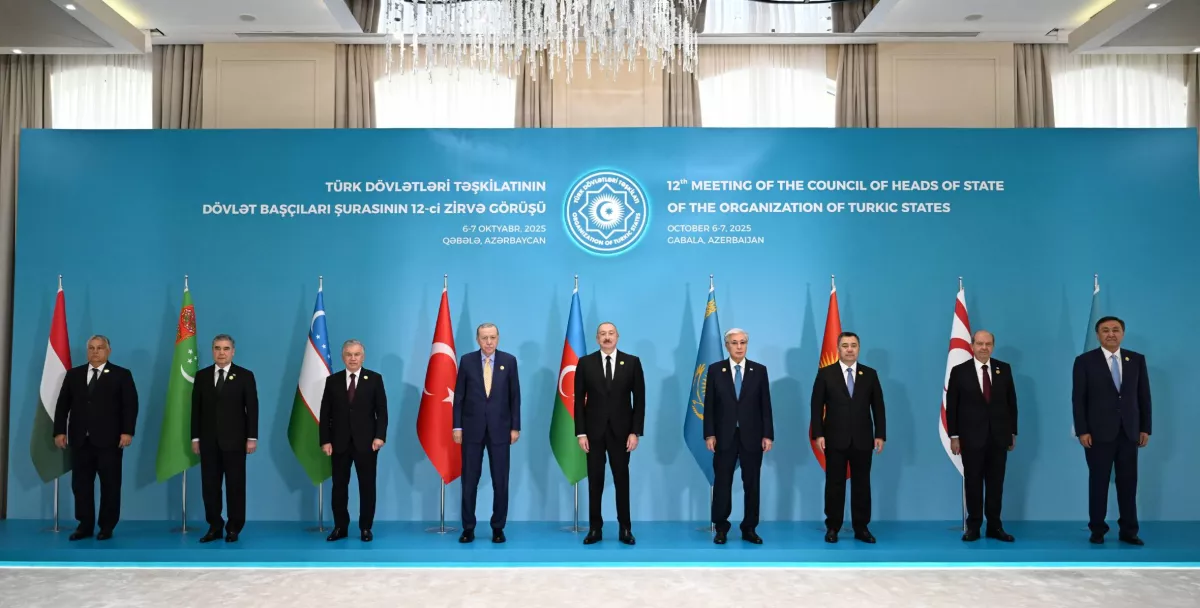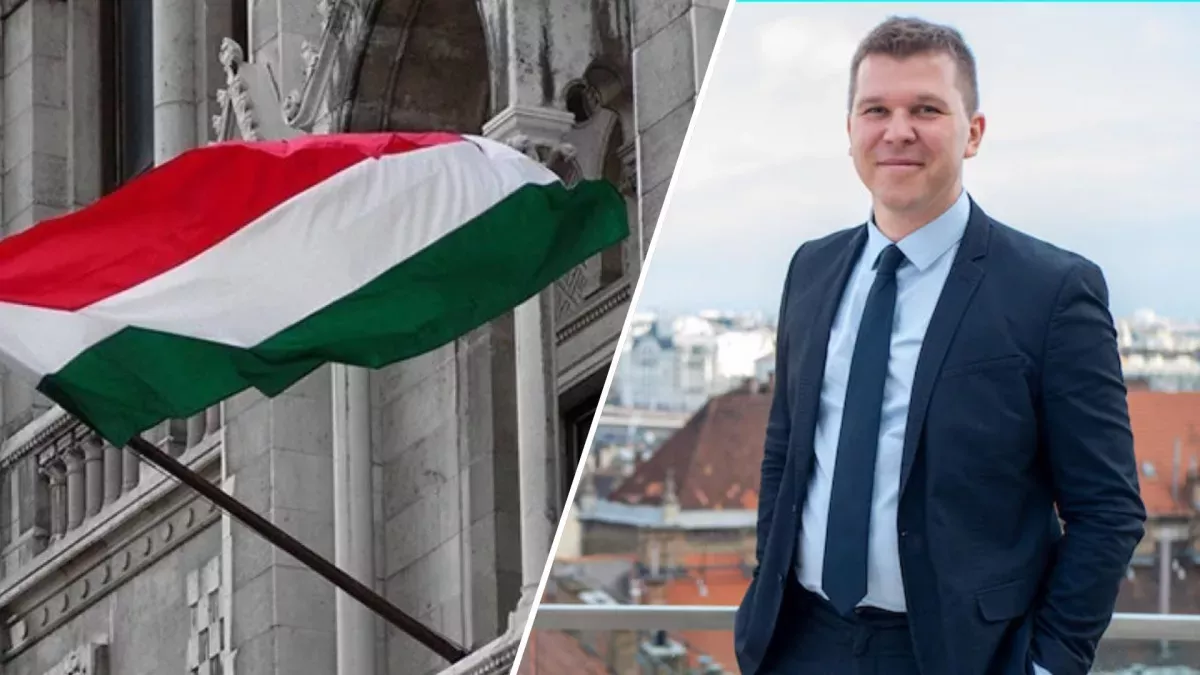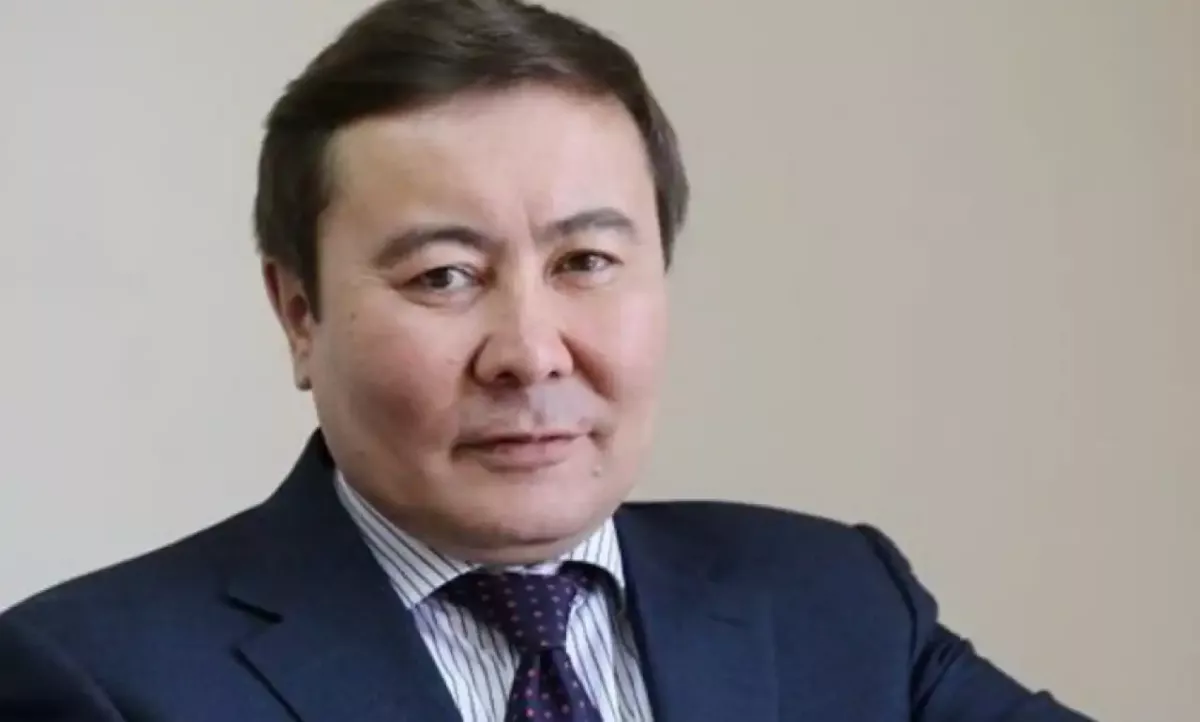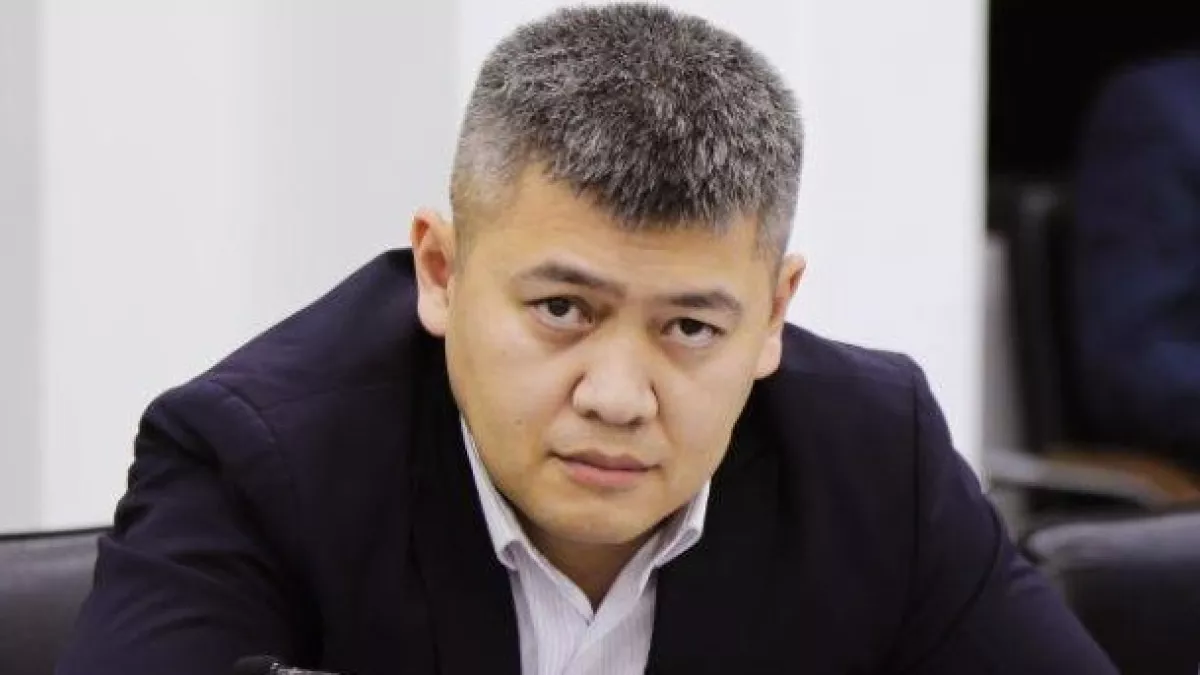Peace, stability, development: key highlights from OTS summit in Gabala Expert opinions on Caliber.Az
The Organisation of Turkic States (OTS) Summit was recently held in Gabala, bringing together the leaders of the Turkic world: President of Azerbaijan Ilham Aliyev, President of Türkiye Recep Tayyip Erdoğan, President of Uzbekistan Shavkat Mirziyoyev, President of Kazakhstan Kassym-Jomart Tokayev, Leader of Kyrgyzstan Sadyr Japarov, Chairman of the Halk Maslahaty of Turkmenistan Gurbanguly Berdimuhamedow, President of the Turkish Republic of Northern Cyprus Ersin Tatar, and Hungarian Prime Minister Viktor Orbán.

In his address, President Ilham Aliyev highlighted the special symbolic significance of holding the summit in Gabala. Once the capital of Caucasian Albania, covering vast territories, Gabala has today become a venue for strengthening the unity of the Turkic world.
“Our shared historical and ethnic roots, along with common national and spiritual values, bring us together as a family,” the president stated.
The significance and potential of the Gabala Summit are drawing attention not only from political leaders but also from experts across the Turkic world.
A Caliber.Az correspondent reached out to leading analysts from Hungary, Kazakhstan, and Kyrgyzstan to gather their insights on the summit and their expectations for its outcomes.

Hungarian analyst, journalist, and Director of the research foundation Oeconomus, Anton Bendarzsevszkij, noted that Hungary has traditionally participated in meetings of the Organization of Turkic States (OTS) and sees significant strategic value in doing so.
“For us, this carries tangible economic significance — strengthening diplomatic contacts in the region, expanding cultural influence, trade, and investment, as well as the opportunity to increase Hungary’s weight in international politics,” the political analyst remarked.
In his view, this approach makes Hungary a more independent actor and a more autonomous player on the international stage.
“Hungary positions itself as a bridge between Europe and Asia — a sort of link between West and East. Such meetings help reinforce this image. Hungary is a member of the European Union and NATO and holds observer status in the OTS, which brings together countries from the South Caucasus and Central Asia. For us, the Organisation of Turkic States is an important additional channel of communication in the region,” the expert explained.
According to the analyst, the region itself is of great interest because it intersects with the strategic interests of Türkiye, China, Russia, and Western countries.
“The economic agenda was also discussed at the Gabala meeting — joint investments, removal of trade barriers, and creation of new production chains. In this turbulent period, it is especially important for Hungarian companies to gain access to the markets of Central Asia — in areas such as agricultural technology, construction, and digital solutions. However, the key topic remains energy and the need to reduce dependence on Russian supplies, diversifying energy sources,” the analyst noted.
According to him, Hungary is actively seeking alternatives to Russian energy resources, and cooperation with Turkic countries is one of the most important avenues to enhance energy diversification. Azerbaijan, Kazakhstan, and Uzbekistan possess significant oil and gas reserves, making Budapest interested in direct agreements and energy projects with these states. Türkiye is also crucial, as key gas pipelines pass through its territory, making cooperation with Ankara a strategic priority for Hungary.
“It is also noteworthy that Turkic countries are striving to strengthen their independent positions while situated between Russia, China, the United States, and European countries. Here, it is important to assert themselves as active political players and autonomous actors. Hungary is an economically open country; we operate in all directions — trading with China, Europe, and the U.S. — which is why cooperation with the OTS is an extremely important mechanism for us,” Bendarzsevszkij concluded.

Talgat Kaliev, Candidate of Political Sciences and member of the National Kurultai under the President of Kazakhstan, believes that in today’s geopolitical context, integration initiatives and foreign policy events of this scale—such as the OTS Summit—draw significant global attention, primarily due to the vast geography of the Turkic world.
“The Turkic world is a vast collection of peoples and countries, spanning Central Asia, the South Caucasus, and Türkiye. Essentially, it forms the heart of the Eurasian continent, and such a broad format naturally draws attention. Especially now, against the backdrop of the development and growing relevance of the Trans-Caspian transport corridor, coupled with intense geopolitical tensions surrounding Iran, uncertainty in the Middle East, and proximity to hotspots of conflict, including the Russia–Ukraine war.
Events like these inevitably attract the attention of the global community, and it is encouraging that the Turkic world, under such circumstances, remains an island of stability, peace, and prosperity. I am convinced that this summit is highly significant because, despite all challenges, our countries traditionally focus on development and positive initiatives at such meetings. I believe the current summit will take place in the same constructive atmosphere,” the political analyst said.
According to Kaliev, there is active cooperation between Turkic countries in many areas — including military-technical fields, security, transport, logistics, and investment in infrastructure projects.
“One of the key topics is artificial intelligence and the implementation of joint projects in this area, as it is currently one of the most relevant and in-demand fields worldwide. We cannot remain on the sidelines: the sooner we start working on this, the further we can advance. Kazakhstan places particular emphasis on the development and implementation of AI technologies — we have established a Ministry of Artificial Intelligence and already have concrete plans in this area. Given the president’s attention to this topic, it was undoubtedly raised and discussed at the summit,” Kaliev noted.

At the same time, Kyrgyz political analyst and Sinologist, Master’s graduate of Zhejiang University, Aibolot Aidosov, noted that issues of peace and stability have increasingly come to the forefront of the OTS agenda. According to him, the organisation is increasingly being seen as an example of a union that, despite crises and geopolitical storms, continues to remain resilient, becoming ever more effective and promising.
The core of this process, he explained, lies in the fact that the member states share a common vision of the future, grounded in traditional human values.
“The main challenges that the OTS must address today lie in the realm of security — encompassing the economy, transport, defence, and strategic resilience. The confrontation between major powers competing for leadership — such as the United States and China — affects the interests of all member states. This includes the conflict in the Middle East, rising tensions around Iran, and risks associated with the U.S.–China trade war. The OTS, as a platform between Asia and Europe, should serve as a space where the interests of global powers can find compromise solutions. This will likely become one of the key tasks for the leaders of the member states,” Aidosov concluded.








